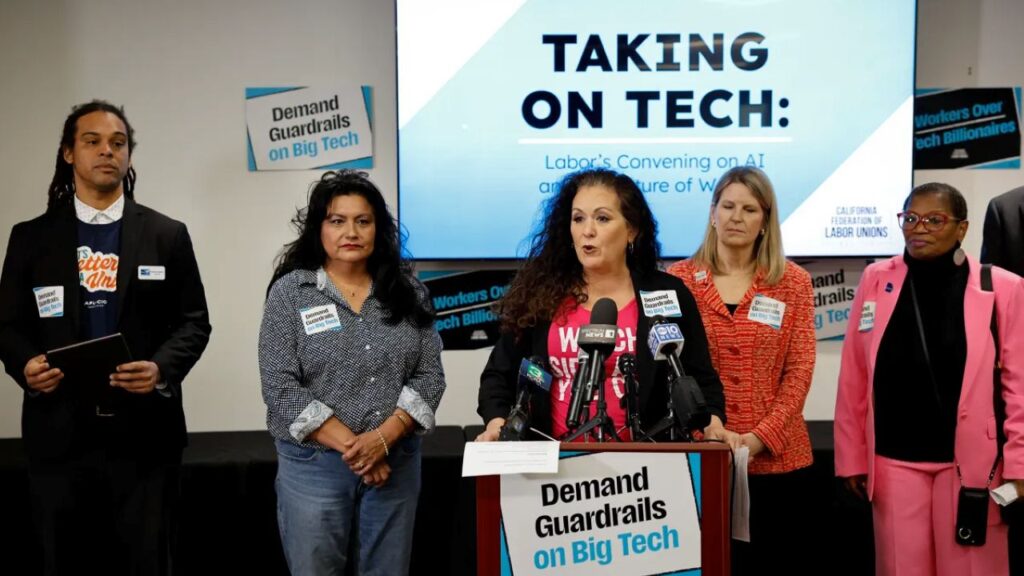Share
For many kids, heading back to school means more than resuming classes and homework. It means getting back to clubs and student organizations focused on sustainability — everything from composting and recycling to reducing food waste and promoting cleaner oceans and waterways.
“Young people tend to be incredibly active in sustainability issues, much more so than many adults,” says April Peebler, executive director of Heirs to our Oceans (H2OO), a Berkeley, California-based organization that tries to help 12- to 17-year-olds from around the world learn about and advocate for the environment.
“There’s a lot of passion there, and a strong desire to deal with the problems facing the environment that they are going to be inheriting,”
Hannah Ono, 15, of Boston, has already been advocating for the environment for years. In fourth grade, she and some friends started a petition asking Dunkin Donuts to stop using Styrofoam cups. The Change.org petition drew 300,000 supporters, and helped persuade the company to ditch Styrofoam cups by 2020, she says.
“My next petition is for the City of Boston to ban Styrofoam containers. I just put it up a couple months ago on Change.org, and it has about 300 signatures so far,” says Ono, a rising sophomore at Phillips Academy Andover.
The Most Famous Teen Dedicated to the Environment Is Greta Thunberg
She’s also one of a group of students who got a $1,000 grant from her school to raise awareness this year about sustainable fashion. “We want people to know more about where their clothes are coming from. Fast fashion can be really harmful for the environment,” she says.
“We’re going to be the ones living with the consequences of climate change, so it’s important for us to take these steps,” Ono says of her generation.
Perhaps the most famous teen dedicated to the environment is Greta Thunberg, the Swedish climate activist who inspired coordinated climate-change strikes around the world last year. She arrived in New York on Wednesday and will speak at the United Nations Climate Action Summit, then join world leaders who will present plans to reduce greenhouse gas emissions.
Thunberg is taking a year off school to pursue her activism.
Joelle Alley heads a California non-profit, EarthTeam, that offers a paid internship program for kids interested in sustainability. She says the group starts each school year by presenting their program to around 10 under-resourced high schools in the Richmond, California, area.
Students Have Recovered 3.9 Million Pounds of Food so Far
“We recruit teams of 14 interns from each school, and the interns work with coaches to identify environmental problems on their campus and in their community. Then the kids come up with action campaigns to help solve the problems,” Alley says.
Through the Food Recovery Network, one of the largest student-led movements fighting food waste and hunger, students at college campuses in 44 states and the District of Columbia connect with college dining halls, local shelters and food pantries to make sure excess food is delivered to those in need, instead of going into the trash.
“We coach and mentor students to help them build local food recovery programs,” says the organization’s executive director, Regina Anderson. “There’s an incredible amount of food waste on university campuses and this is a very practical way to help our environment.”
Through the network, students have recovered 3.9 million pounds of food so far, Anderson says.
Students Who Care About Sustainability Can Have a Huge Impact
“At any given time, we work with 5,000 college students,” as well as some high school-age volunteers, she says.
Educators say students who care about sustainability can have a huge impact, particularly as they enter the workforce.
“We’re seeing this manifest in two ways,” says Jonathan Deutsch, professor of Food and Hospitality Management in the College of Nursing and Health Professions at Drexel University, in Philadelphia, where the Food Recovery Network has been active for years.
“Students are very mindful of their own impact, opting for reusable water bottles and coffee mugs. But it’s taken to a much wider-reaching level in the case of students in professional programs. Someone studying to be a food service manager in a hospital, for example, who is launching their career with a sustainablility-oriented mindset, really moves the needle,” he says. “They are making decisions about thousands of meals a day, and that adds up to a huge environmental impact.”
Thunberg told political and business leaders in Davos recently: “I don’t want you to be hopeful. I want you to panic. I want you to feel the fear I feel every day. And then I want you to act.”
Categories



















